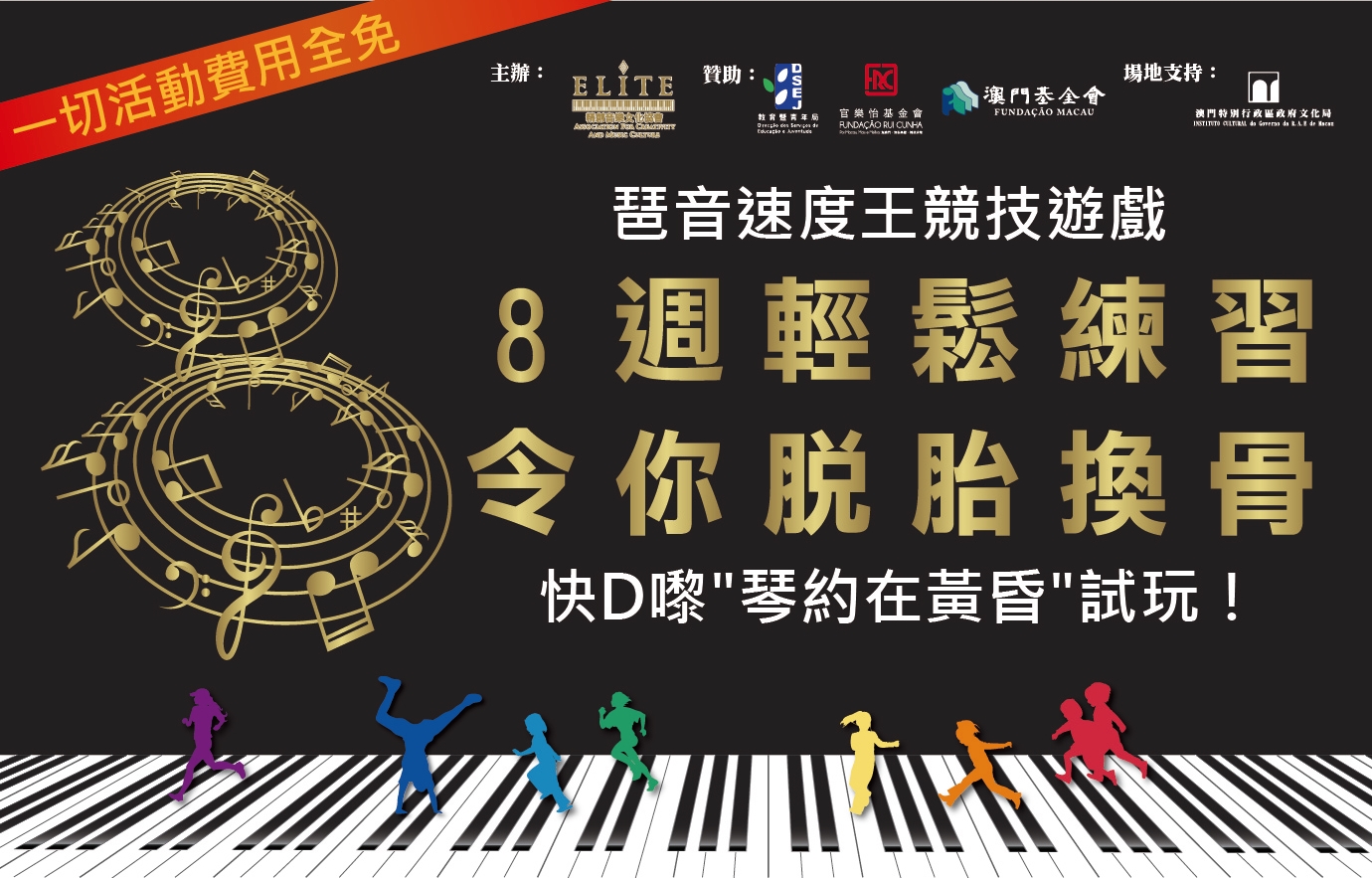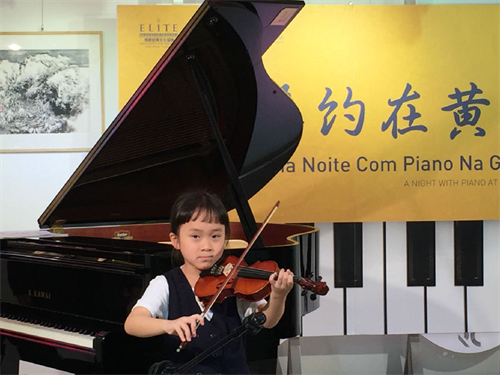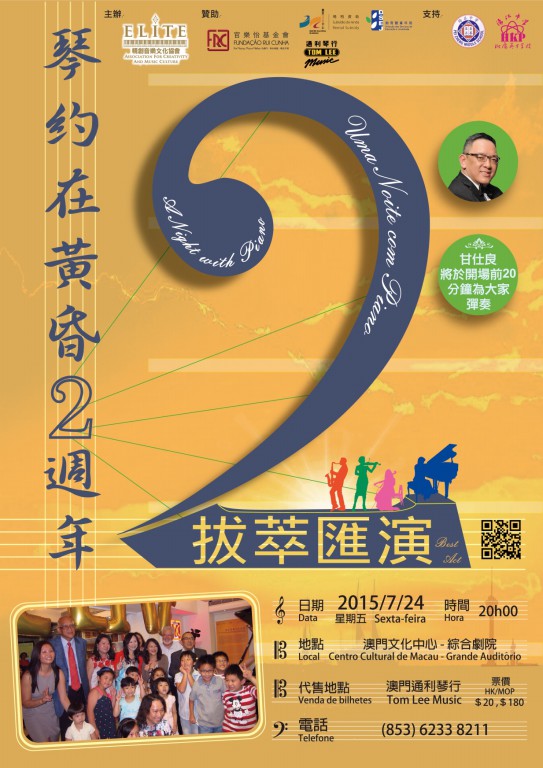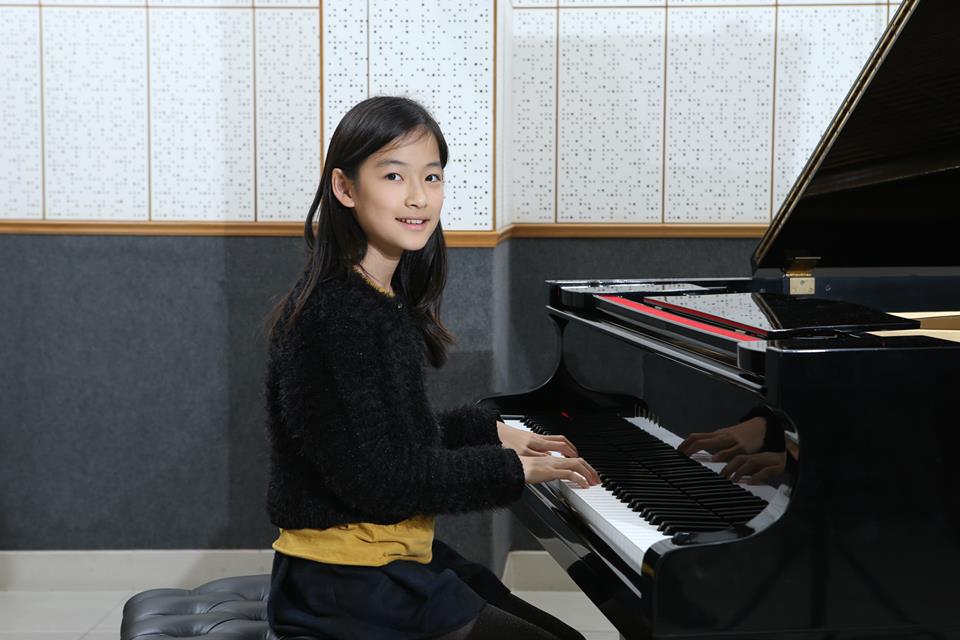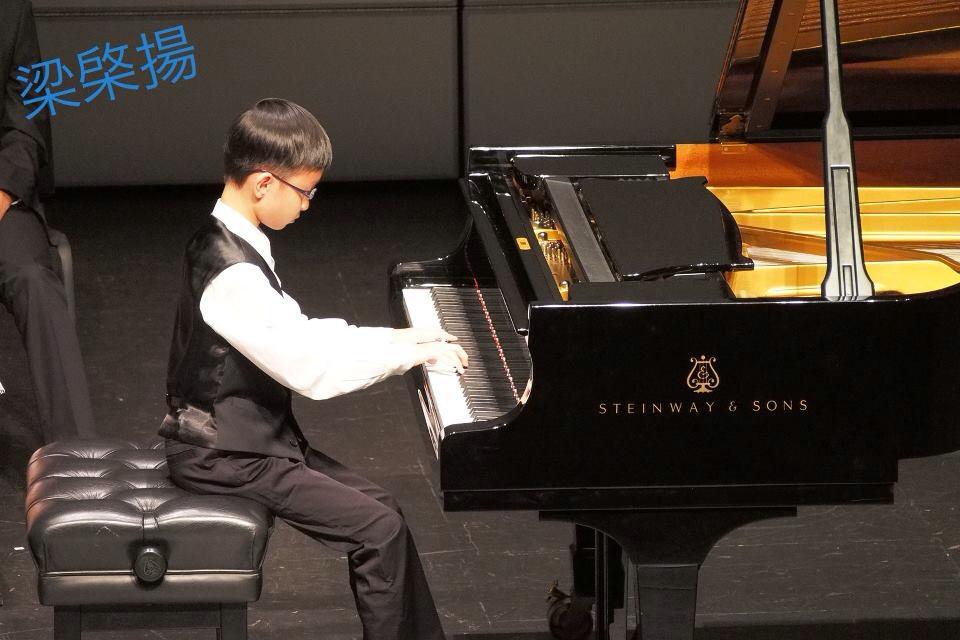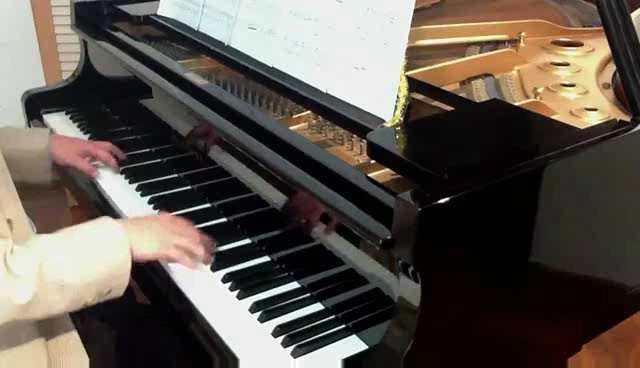-
- 甘仕良流行鋼琴新體驗--香港站
演出時間:2015年8月8日星期六下午4:00
演出地點:香港九龍灣Megabox 通利演藝廳
票價:HK$130
-
- 琴約在黃昏2週年*拔萃匯演
演出時間:2015年7月24日 (星期五) 晚上八點
演出地點:澳門文化中心綜合劇院
-
- 甘仕良流行鋼琴新體驗--澳門站
2015年7月 4 號及加開的 11 號門票已售罄。
現加演 18 號星期六晚上6:30最後一場
演出地點:澳門亞洲鋼琴城
-
- 甘仕良CD集--琴約在黃昏
「甘仕良CD集--琴約在黃昏」現已全面上市,於香港HMV、香港唱片、通利琴行、各CD舖及書局及澳門通利琴行、官樂怡基金會、葡文書店均有售。
-
- 本會接受澳門電視台訪問
澳門電視台訪問本會"琴約在黃昏"之每週恆常音樂交流活動
http://www.tdm.com.mo/c_video/
mobile_get_video.php?vid=18779
-
- 琴約在黃昏--CD音樂分享會
時間:2014 年 5 月25 號 星期日 下午 3:30 - 5:00
地點:官樂怡基金會畫廊 - 澳門南灣大馬路 749 號地下
-
- 甘仕良鋼琴CD集--琴約在黃昏
甘仕良 琴約在黃昏 鋼琴CD 於
HMV , CD WearHouse , 香港唱片,澳門天域唱片,通利琴行,大眾圖書,商務書局⋯ 等均有售,多謝大家支持!

- 地址 / Address :澳門羅馬街96號 東南亞花園B座四樓AG室 Rua da Roma, no.96, Edif "Jardim Tung Nam Ah",Bloco B,4. andar "AG"
- 電話 / Tel:+853 6233 8211
- 電郵 / Email:elitemusic1119@yahoo.com.hk
Copyright 2011, ELITE.All Rights Reserved.Designed By澳門盈雋有限公司








